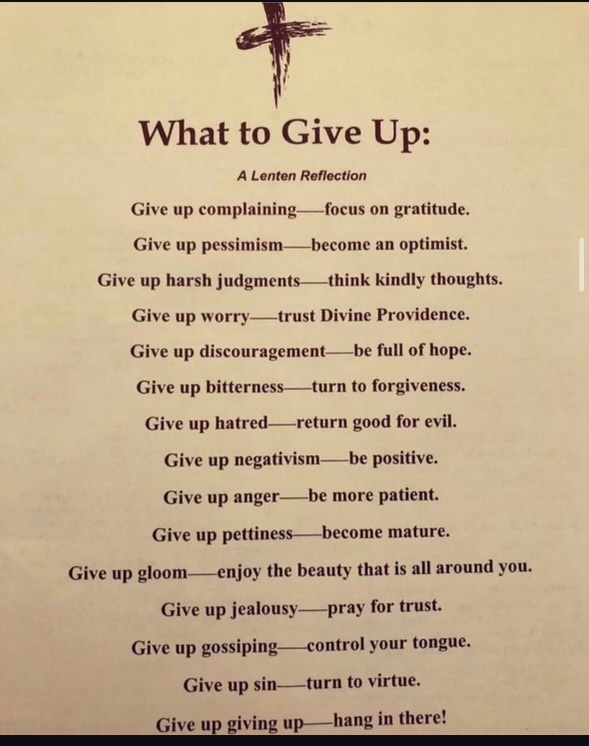A final examination of conscience (by Claudia Martin Grams) 🙏🏻🙏🏻🙏🏻
WHAT CATHOLICS WILL REGRET TOO LATE:
A Final Examination of Conscience
An In-Depth Exploration of What We Ignore, Delay, or Excuse—Until It’s Too Late
🕯️ INTRODUCTION:
When Regret Comes After the Door Closes
“Then the door was shut. Later the other virgins also came and said, ‘Lord, Lord, open the door for us!’ But he replied, ‘Amen, I say to you, I do not know you.’” (Matthew 25:10–12)
This haunting conclusion to the Parable of the Ten Virgins is more than a story—it’s a warning. Too many Catholics live as though there’s always more time.
But regret, in the spiritual life, is not just sadness—it is often the sudden awareness of wasted grace, delayed repentance, and ignored responsibilities before God and others.
This article explores the deep, often-overlooked regrets that many Catholics may face at the end of life—or even earlier, in moments of clarity that come too late.
Each section unpacks a spiritual area of neglect, with Scriptural support, practical examples, and a call to urgent repentance.
1. 💔 The Tragedy of a Prayerless Life
> “Could you not watch one hour with me?” (Matthew 26:40)
What’s Often Regretted:
Many Catholics will one day regret how little time they gave to God in prayer. The silent mornings spent scrolling instead of offering a morning prayer. The neglected Rosaries. The rushed Masses.
The excuses for not setting aside even five minutes for heartfelt conversation with the Lord.
The Blindspot:
It’s easy to assume that "God understands" our busy schedules. But in truth, prayer isn’t a luxury—it’s our oxygen.
Without it, we lose the awareness of His presence and direction.
Example:
A woman once shared in her testimony that she spent decades being “a good Catholic” who attended Mass, but never really prayed.
Not until her child became ill did she learn to kneel with urgency. By then, she realized how foreign prayer felt.
2. ⚰️ SACRAMENTAL NEGLECT:
Gifts We Treat Like Chores
> “For anyone who eats and drinks without discerning the body, eats and drinks judgment on himself.” (1 Corinthians 11:29)
What’s Often Regretted:
Many Catholics delay confession for years—sometimes decades—thinking sin can wait.
Others receive the Eucharist in a state of mortal sin, or with little reverence, treating it like a ritual rather than the living Body and Blood of Jesus.
The Blindspot:
There’s an assumption that as long as we’re not “evil,” we’re okay. But sacraments are not optional extras—they are lifelines of grace.
To ignore them is to slowly sever ourselves from God’s healing power.
Example:
A lapsed Catholic confessed after 20 years. “I didn’t realize how cold I had become,” he said. “I didn’t notice I was starving spiritually until I tasted mercy.”
3. 🩸 UNREPENTED SINS:
The Baggage We Thought We’d Drop Later
> “If we say, ‘We have no sin,’ we deceive ourselves, and the truth is not in us.” (1 John 1:8)
What’s Often Regretted:
Uncontrolled anger. Sexual sins we dismissed as “normal.” Gossip. Lies. Relationships destroyed by pride.
Some Catholics justify habitual sin with the phrase, “At least I’m not as bad as others.”
The Blindspot:
We assume we’ll “clean up” later. But sin doesn’t wait—it hardens the soul. The longer it lingers, the more it corrupts.
Some regret not because they sinned, but because they never got serious about stopping.
Example:
A man on his deathbed wept not just over his adultery, but over his decades-long habit of mocking the Church’s teachings on sexuality. “I thought I was enlightened,” he said, “but I was just enslaved.”
4. 🌎 INDIFFERENCE TO THE POOR AND SOCIAL SIN
> “Whatever you did not do for one of the least of these, you did not do for me.” (Matthew 25:45)
What’s Often Regretted:
Not feeding the hungry. Not visiting the lonely. Looking away from suffering because it was inconvenient. Living comfortably while ignoring the struggles of others.
The Blindspot:
We often view charity as extra-credit. But Jesus made it a criterion of judgment. Every missed opportunity to love concretely will be weighed in eternity.
Example:
A successful entrepreneur recalled avoiding a beggar daily. “One day, he disappeared,” she said. “Now I wonder—was that Christ?”
5. 💍 FAILING IN ONE’S VOCATION
> “To the one who knows the right thing to do and does not do it, to him it is sin.” (James 4:17)
What’s Often Regretted:
Some regret ignoring a possible calling to priesthood or religious life. Others, as married or single people, regret not fully living out their vocation with joy, fidelity, and intentional love.
The Blindspot:
We often confuse calling with comfort. But a vocation is not just a life choice—it’s a divine mission. Many fail to embrace it out of fear or distraction.
Example:
A priest once shared that the most sorrowful confessions he hears are from those who say: “I knew God was calling me... but I ran.”
6. 🗣️ SILENCE IN THE FACE OF TRUTH
> “Woe to me if I do not preach the gospel!” (1 Corinthians 9:16)
What’s Often Regretted:
The co-worker you could have invited to Mass. The teenager who needed guidance, but you stayed silent. The friend who lived in sin, and you said nothing for fear of upsetting them.
The Blindspot:
We think being nice is the same as being faithful. But silence, when truth should be spoken, is often a form of cowardice.
Example:
A mother wept years after her son left the faith. “I never explained why I believed. I just hoped he’d ‘figure it out.’ He didn’t.”
7. 🕯️ RELIGIOUS APATHY:
Losing the Fire of Faith
> “I know your works: you are neither cold nor hot. Would that you were either cold or hot!” (Revelation 3:15)
What’s Often Regretted:
Many cradle Catholics regret growing lukewarm—going through the motions, but without passion or purpose. Their Bibles gather dust. They stop learning about the faith. Zeal fades to ritualism.
The Blindspot:
The danger isn’t always losing faith outright—it’s letting it become irrelevant. The lukewarm believe without burning, obey without love.
Example:
A man in his 60s realized during a retreat: “I know sports stats better than I know the Gospel. My soul has become a stranger to me.”
8. ⛓️ SCANDAL AND HYPOCRISY:
When Our Actions Drove Others Away
> “It would be better for him to have a great millstone hung around his neck... than to cause one of these little ones to sin.” (Luke 17:2)
What’s Often Regretted:
Living a double life. Causing someone to leave the Church through harshness, hypocrisy, or abuse of authority. Raising children with rules, but not love or witness.
The Blindspot:
Many regret the consequences of their behavior only when they see the damage done to others—especially those they love.
Example:
A woman shared: “My son won’t go to Mass because of the way I used religion to control him. Now I see it. I wish I could go back.”
9. 🏛️ COLLECTIVE AND HISTORICAL FAILURES
> “For all have sinned and fall short of the glory of God.” (Romans 3:23)
What’s Often Regretted:
While personal sins weigh on individual consciences, Catholics also carry collective shame—from clerical abuse scandals, colonial abuses done in Christ’s name, or institutional silence in times of injustice.
The Blindspot:
Pretending the Church’s human members never sinned does more harm than good. Regret must lead to truth, humility, and reform—not denial.
Example:
In World Youth Day 2000, Pope John Paul II made a profound public confession of the Church’s past sins.
“We humbly ask forgiveness,” he said, “for the sins of action and omission of the sons and daughters of the Church.”
🧎 FINAL REFLECTION:
Let Regret Begin Now—Not at the End
> “Now is the acceptable time; now is the day of salvation.” (2 Corinthians 6:2)
You still have breath. You still have time. You can still turn regrets into acts of reparation, growth, and holiness.
The saints are not those who never fell—they are those who rose in time.
Regret is only tragic when it’s too late. But today, it can become grace. Let this be your moment of awakening.
✝️ Practical Action Plan: The “Reversal of Regret”
1. Daily Examen – Ask yourself: What would I regret if today were my last day?
2. Frequent Confession – Let grace cleanse what pride hides.
3. Concrete Charity – Make invisible people visible through action.
4. Deep Prayer – Start with 5 minutes a day. Let God rekindle your soul.
5. Evangelize – Speak when you’re tempted to stay silent.
6. Revisit Your Vocation – Ask: Am I living what God called me to be?
Catholic Christianity
















